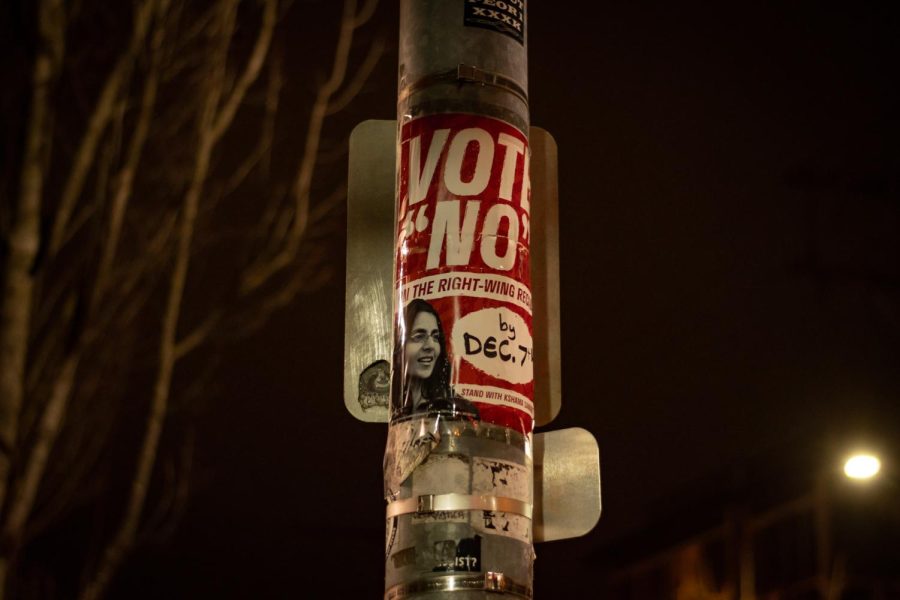Hello Harrell, So Long Sawant?
Bruce Harrell’s election made history Nov. 4 when he became the first Asian-American mayor of Seattle and its second African American mayor.
Harrell’s campaign centered on goals surrounding issues such as housing Seattle’s homeless population and police reform. A lifelong resident of the Central District, Harrell was born to a formerly interned Japanese mother and a Black father who lived through the Jim Crow laws of the South.
Harell’s victory as a moderate Democrat may have been a surprise, especially in the nationally recognized progressive city of Seattle as his victory accompanied the wins of moderate Democrat Sara Nelson for City Council and Republican Ann Davison for City Attorney, which could show a trend of Seattle voting for a more centrist public office.
This election has suggested that perhaps Seattle is not the progressive champion it is known to be. Three of the four progressive candidates—M. Lorena Gonzalez, Nikkita Oliver and Nicole Thomas-Kennedy—lost to more moderate opponents. Teresa Mosqueda, the fourth candidate, was able to hold on to her council seat.
With Seattle elections being held during an off-year, voter turnout was expected to be significantly lower, and according to data from the Secretary of State’s Elections Division, King County only had a 43.41% voter turnout.
Andrew Johnson, a political science lecturer at Seattle University, attributed the low turnout to the off-year in which the election took place.
“If this same election was happening during midterms or a presidential year, it’s most likely that progressives would’ve done a lot better,” Johnson said.
Matthew Wald, a fourth-year in the College of Nursing, voiced his take on Harrell’s election.
“I am very optimistic for the new mayor. I was very impressed with his campaign,” Wald said. “I think he ran a very goal-oriented campaign … I’m looking forward to his tenure as mayor. I think that he has a very strong background in the community and in Seattle. And I think that he has very realistic outlooks and solutions to problems.”
While the last election has determined the faces of a new City Hall, there is still another ballot to expect, particularly for registered voters in District 3. The upcoming recall vote for Kshama Sawant, which did not make it on the November ballot for Seattle’s next mayor due to delayed submission of signatures, is due Dec. 7.
Several red tables have been seen on campus, which are operated by members of the Kshama Solidarity Campaign. Bryan Koulouris, a spokesperson for the campaign in support of Sawant, described the premise of the solidarity campaign.
“We’re organizing a no-vote on a right-wing recall that is against the Black Lives Matter movement [and] against Seattle’s most progressive elective official,” Koulouris said. “The ballot being mailed out before Thanksgiving and the final election date between Thanksgiving and Christmas on Dec.7… is a form of voter suppression akin to various measures that the right-wing is taking across the country to try and drive down voter-turnout.”
The counter campaign, Recall Sawant, alleges Sawant’s misappropriation of funds and her alleged role in political demonstrations occupying City Hall and the former east police precinct. This also includes her alleged violation of the State Confidentiality Program by leading a protest to former Mayor Jenny Durkan’s private residence.
Wald does not believe that the recall vote will pass, but thinks it serves as an opportunity to recognize inappropriate political activity.
“[This is a] wakeup call for [Sawant] to realize that even people who agree with her are not exactly happy with her conduct, her manner of representing and, in some cases, not representing her constituents.”
The Kshama Solidarity Campaign is fighting to keep Sawant in the council.
“We have the goal to keep Kshama in office to defend the victories we’ve had with the $15/hour minimum wage, with the Amazon tax and with historic renter’s rights,” Koulouris said.
The implications of this election reach far beyond the boundaries of its district because of Sawant’s national leadership among Democratic Socialists, in which she is open about being a member.
Navigating Seattle’s politics can be overwhelming, especially for out-of-state students, but there are opportunities for students to engage.
“All politics are local, and at the same point in time, all politics are national and all politics are global … I would [encourage] anyone afraid to start getting engaged in issues because there is a lot of work to be done and it’s only going to increase in intensity,” Johnson said. “I think for new students, it’s important to get involved in politics now because these issues are going to become increasingly salient and important for our lives in the future.”
Regardless of the outcomes, voters have indicated how they want the city to proceed with handling some of its most difficult issues. As for whether these elected officials will fulfill their election promises, only time will tell.


